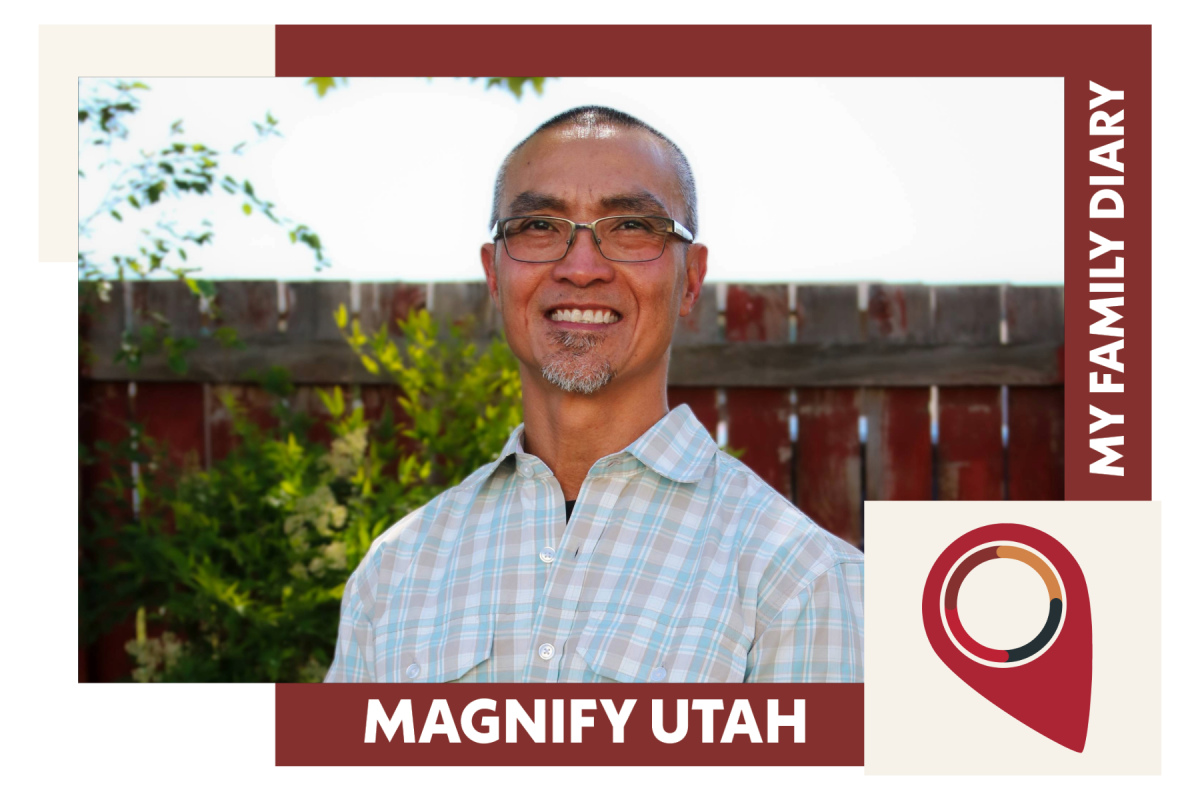Lee Phung
Born in Dalat, Vietnam | West Valley City, Utah
Lee grew up in Vietnam and spent his early years with his mom in Vietnam. Later, he moved to Saigon with his parents, where one of his brothers, Lou was born. From there, Lee and his family emigrated to the small town of Delta, Colorado. He started his childhood days alongside friends, practicing martial arts, and in competitive swimming, before moving to Utah. Lee spent most of his childhood in West Valley City, Utah where he grew to become more familiar with American culture and society as he connected with kids outside of his culture.
Making Utah Home
What is your family’s story behind making Utah your home?
My mom and dad made a big sacrifice to bring us to the U.S. Delta, [Colorado] gave us the opportunity to get grounded and understand American society. It was slower paced and it helped us integrate and focus on the [great] outdoors, and those are some of the things that a first-generation Vietnamese [family] like us were able to endure and grow together… Growing up, we didn’t understand some of the things my mom and dad wanted us to do. We always thought of it as ‘it’s weird, we’re in the U.S. now, why are you forcing us to do these things? We’re not Vietnamese any more!’ But, I’m grateful they had us keep speaking Vietnamese because now I’m able to retain it now that I’m older. My mom [also] always [stressed] the importance of being home at a certain time to have dinner together. She loved to feed us, and she understood that’s when the family was brought together and was a time [where] we could forget about our days and connect with each other.
New Life in Utah
What makes Utah home?
With us being the first generation, we’re kind of in the in-between, because we have the older generation, which is my parents. And then I have my children, [who] don’t really understand that connection with the older generation or before me. With us being a tight-knit family, we try to carry and pass [that connection] along to our children. My brothers and I are close, [just as their kids’] siblings and my daughter are. Their wives and my wife are an extension of family. I don’t see them as my brother’s kids or my kids, but it’s all our kids. We also bridge the [connection] gap and remind them that we’re here because of the generation before us. [I tell them] of what grandma and grandpa did to be able to bring us here and for them to be where they are now. So we constantly remind them about their heritage but also how it all began and how it’s possible [to be] where they are [now].
Building the Next Generation
What hopeful message would you like to share with others as a first generation Utahn?
We always get together on birthdays, even if they’re older [kids]. It’s not just about the younger kids, and even our own birthdays, we [use it] to spend time with our mom. And we try to make an effort whenever we can to get together as often as we can. And if not, by default, we will always go to mom’s house every other week, every two weeks. And that’s something that we plan on, because life gets busy, but we can always plan [these gatherings], and it kind of resets [everyone] and gets everyone together. As far as moving forward and how we’re going to carry that, we hope to keep doing [these gatherings] as times change. And as our children get older, and my daughter gets older, it’s going to be harder, but we [will always] try to reflect and pull together when we can.
HOME IS HERE
Interpretation may lead to slight variations between spoken content and its written representation. Efforts are made to capture meaning accurately, but minor differences can occur due to language dynamics. Written quotes are approximations of the original spoken dialogue. All quotes that contain square brackets (i.e. “[]”) indicate a direct quote that has been edited to fit the surrounding information and/or add context that does not show up within the scope of the quote and has been approved by their respective speaker.

